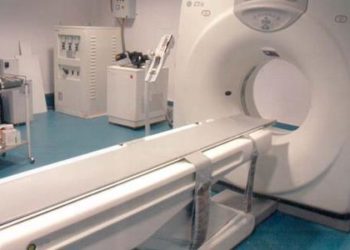Maternal chronic conditions increase risk of cerebral palsy among offspring
1. Maternal chronic conditions (particularly autoimmune conditions) such as type 1 and 2 diabetes, rheumatoid arthritis, and migraines were associated with a higher risk of cerebral palsy in offspring.
2. There was a stronger association of cerebral palsy risk with maternal chronic conditions recorded at delivery, as compared to maternal chronic conditions recorded in the patient registry, which may have occurred after pregnancy.
Evidence Rating Level: 2 (Good)
Study Rundown: Maternal prenatal conditions that cause an inflammatory state are thought to contribute toward the development of cerebral palsy among offspring. However, previous studies that have looked at maternal chronic conditions and the risk of cerebral palsy have lacked power and have typically only looked at one to two maternal chronic conditions. This study used national health registries in Norway to look at the association between various maternal chronic conditions and the development of cerebral palsy. Maternal chronic conditions (particularly autoimmune conditions) such as type 1 and 2 diabetes, rheumatoid arthritis, and migraines were associated with a statistically significant higher risk of cerebral palsy in offspring, with an even greater risk in mothers with multiple chronic and/or autoimmune conditions. Additionally, there was a stronger association of cerebral palsy risk with maternal chronic conditions recorded at delivery, as compared to maternal chronic conditions recorded in the patient registry, which may have occurred after pregnancy. Chronic conditions in fathers showed no association with the development of offspring cerebral palsy, suggesting that the development of cerebral palsy is unlikely to be as a result of genetic factors. Because the present study linked individual data from multiple national registries, it allowed for a robust analysis. However, certain confounding factors like maternal BMI, which is a known contributor toward cerebral palsy, were not controlled for. The results of this study further solidify the link between maternal inflammatory states and the development of cerebral palsy among offspring.
Click to read the study, published today in Pediatrics
Relevant Reading: Perinatal Factors Associated With Cerebral Palsy in Children Born in Sweden
In-Depth [retrospective cohort]: To understand the association of maternal chronic conditions and the development of cerebral palsy among offspring, this study carried out a cohort study using various Norwegian health registries. A total of 1,360,149 children met the inclusion criteria of birth from 1990 – 2012 who survived to at least 2 years old and having information on maternal chronic conditions from the birth registry. 3,575 of these children had cerebral palsy. The primary outcome measure was diagnosis of cerebral palsy, defined as those who received disability compensation based on a cerebral palsy diagnosis or those that were at least twice recorded in the patient registry with a cerebral palsy diagnosis. The study found that mothers with any chronic condition were more likely to have offspring with cerebral palsy (RR 1.3; 95% CI 1.2–1.5). The relative risk of offspring cerebral palsy was 1.3 (95% CI 1.1–1.4) with any single condition, 1.6 (95% CI 1.1–2.4) with two conditions, and 3.4 (95% CI 1.5–7.7) with ≥ 3 conditions. Specific conditions which showed a statistically significant association with offspring developing cerebral palsy include type 2 diabetes (RR 3.2; 95% CI 1.8–5.4), type 1 diabetes (RR 2.2; 95% CI 1.4–3.4), rheumatoid arthritis (RR 2.0; 95% CI 1.3–2.9), and migraine (RR 1.6; 95% CI 1.2–2.2). There was a relative risk of 1.4 (95% CI 1.1–1.6) with any maternal autoimmune disease. The relative risk was 1.4 (95% CI 1.1–1.7) with any single maternal autoimmune disease and 2.7 (95% CI 1.1–6.6) with ≥ 2 maternal autoimmune diseases.
Image: PD
©2020 2 Minute Medicine, Inc. All rights reserved. No works may be reproduced without expressed written consent from 2 Minute Medicine, Inc. Inquire about licensing here. No article should be construed as medical advice and is not intended as such by the authors or by 2 Minute Medicine, Inc.









